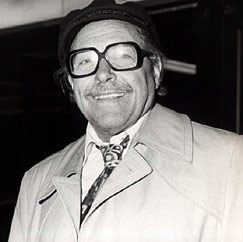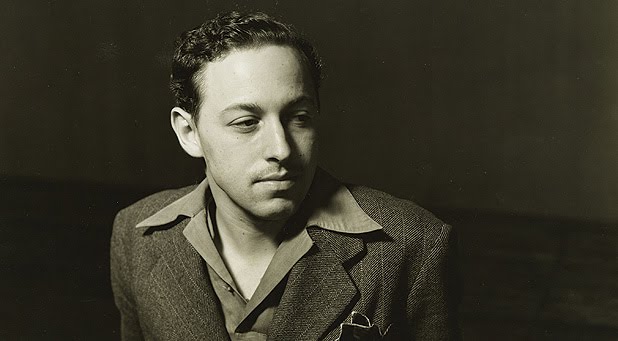Theater Commentary: Tennessee Williams at 100 — A Few Personal Thoughts
Director and woman as I am, I would love to see A Streetcar Named Desire, Cat on a Hot Tin Roof, even The Rose Tattoo, cast with all men. Then I would push some courageous director to attempt to prove on stage that Williams’s final plays are not the work of a declining talent, but one whose early successes were so consciousness awakening that it is we, not the playwright, who feel it is no longer necessary to dream.
By Joann Green Breuer
Thomas Lanier Williams was born 100 years ago on March 26 and died of hypochondria 72 years later. He choked on the cap of a bottle of medicine for a disease he probably did not have. If ends are ever to be considered appropriate, this one was. The writer who made his reputation with nostalgic plays about a South that was conjured as much as remembered, whose women were those a gay man could fall in love with, whose best prose was really poetry, gained and lost fictional and actual life through the power of his delicate but determined imagination.
I met the re-named Tennessee twice, at Boston openings of later and less critically admired plays. The mother of my college beau had been the Broadway producer of A Streetcar Named Desire; I suspected I would, if we stayed together long enough, meet Tennessee Williams. We did, and I did. The first meeting was at the opening party for the Boston staging of Sweet Bird of Youth. Mr. Williams held my hand softly, lingering, not moving his arm or mine. He stared at me for several silent seconds. Then he lilted a cliche, which I will never forget, “Haven’t I met you somewhere before?” I did not know whether to laugh or cry. I responded, “I wish you had.” Then we turned apart, passing a few pleasantries as we passed each other among the guests.
The second time was the Boston opening of Red Devil Battery Sign. Mr. Williams was subdued, pale, slightly bent. Again, he took my hand, unmoving. Still, holding my hand, he smiled and nodded. I did the same. I wished him well with his play. He wished me well with mine. We both meant it.
At the University of Missouri, Williams won prizes for prose and poetry and failed ROTC. As a child he had disappointed his father by preferring books to sports and enjoyed ill health while the family’s Black help, Ozzie, nursed him through two bedridden years of diphtheria and Bright’s disease. His ancestors, preachers and soldiers, owners and owe-ers, politicians and poets, were as much genetic ink as genetic link. It was all there, wrapped in a short, pudgy package, daring to be opened and played with. This writer has crafted (by my count) two volumes of poetry, four of short stories, one of essays, a novella, Memoirs, 32 short plays, 24 full evening, seven somewhere between, and seven film adaptations of his own work. The plays, however, are the things.
I saw an early Williams play at the National Theatre in London a few years ago. Williams had not wanted Not About Nightingales produced during his lifetime, maybe ever. It is Ibsen-ish, in the social context of a prison setting and uprising. The men are brutal; the prose seems stilted. The title is revelatory. Williams knew he needed to look and listen beyond the bars of realism. He was more Chekhov than Ibsen, sensing, like Treplev, new forms for theater and in vigorously wafted phrases, shaping speech to poignant metaphor.
Williams was an American. The name the school bullies taunted Southern-accented Thomas with remained. Thomas, Tennessee, recognized it was right. He was at first alert and often subject to race and class and homophobic prejudice, then beneficiary of the economic mutability that our nation mythologizes and sometimes masters. He was feted and feasted during his mid-life and died alone in the flea bag hotel, Elysee. If you can’t fight them, embrace them; if you can’t cure them, love them. Character or classmate, Tennessee heard and echoed their voices, especially when it hurt. Williams saw eye to eye and through the eyes of strangers, with kindness.
The finest actors of the day embraced Wiliams’s characters: Kim Hunter, Marlon Brando, Jessica Tandy, Geraldine Page, Paul Newman, Mildred Dunnock.

Tennessee Williams — the challenge is to recognize the value in his later, critically savaged, scripts.
The director Elia Kazan let them find motive and movement, “method” technique, mood and memory, layers of pain and empathy. It was exhilarating art. For years various theater companies have attempted to match that original thrill of recognition. Some have come close. Most have failed. Some audiences blame the revival production, some the recollection of the iconic original, some the playwright. In fact, Williams is more difficult than we think. Taste, like time, not nature, is fickle . When art works, it looks easy; when it doesn’t, it seems impossible.
Allegory and autobiography are a transcendent couple. Like (Williams’s own unlegalized) gay marriage itself, that mating is often still missed and misunderstood. For Williams, they are unpretentious, redemptive companions, to be embraced, honored, and mourned.
Director and woman as I am, I would love to see A Streetcar Named Desire, Cat on a Hot Tin Roof, even The Rose Tattoo, cast with all men. For convincing evidence that these roles could well be shaped by men, listen to Tennessee Williams’s recording of Amanda. It’s the best interpretation of her I know of. Then I would push some courageous director to attempt to prove on stage that Williams’s final plays are not the work of a declining talent, but one whose early successes were so consciousness awakening that it is we, not the playwright, who feel it is no longer necessary to dream. Williams’s works are a director’s, actors’, and audience’s palpable dream.
In April, I will pay homage to Tennessee Williams in a review of a collection of never-before-collected one-acts (from New Directions) entitled The Magic Tower and Other One-act Plays. A number of these pieces are scheduled to be produced around the country later this year. I reviewed a wonderful production of a late Williams play, a fascinating exercise in surrealism, back in 2009 for The Arts Fuse. — Bill Marx


Good read! Today’s Washington Post has an article on Williams.